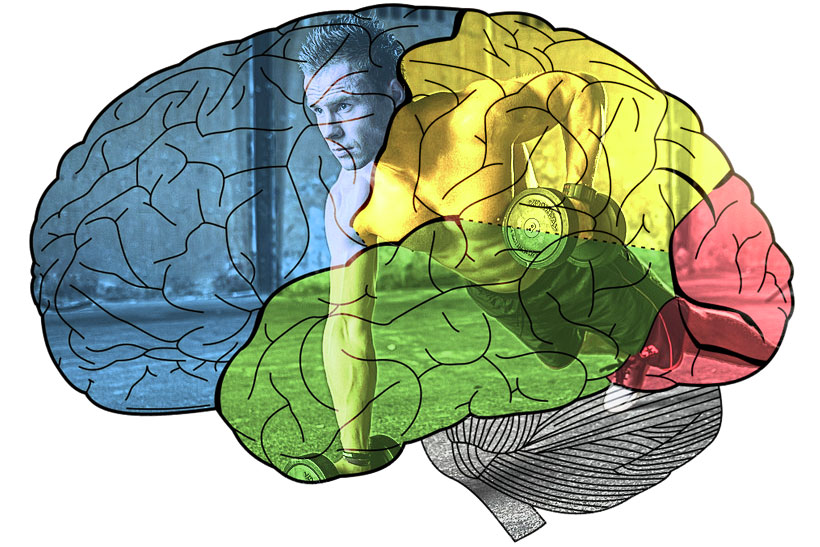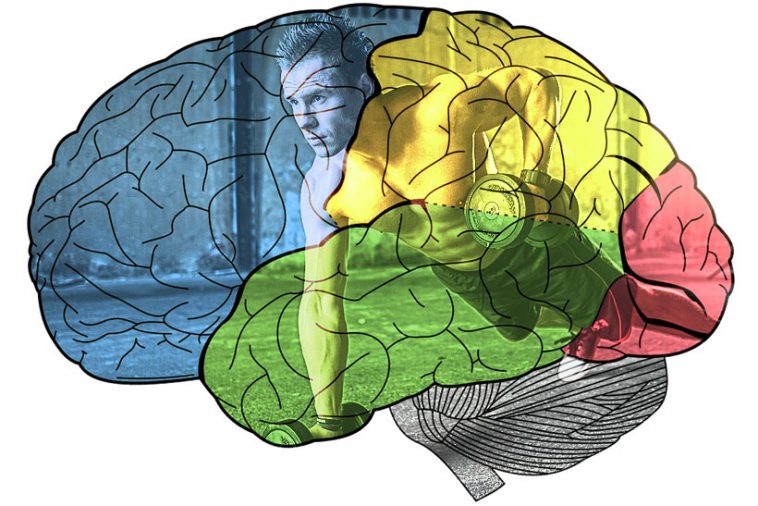- Like
- SHARE
- Digg
- Del
- Tumblr
- VKontakte
- Flattr
- Buffer
- Love This
- Save
- Odnoklassniki
- Meneame
- Blogger
- Amazon
- Yahoo Mail
- Gmail
- AOL
- Newsvine
- HackerNews
- Evernote
- MySpace
- Mail.ru
- Viadeo
- Line
- Comments
- Yummly
- SMS
- Viber
- Telegram
- JOIN
- Skype
- Facebook Messenger
- Kakao
- LiveJournal
- Yammer
- Edgar
- Fintel
- Mix
- Instapaper
- Copy Link
 We all know that exercising gives many different physical benefits. Some of them are increased strength, more stamina, improved blood pressure, and so on. However, did you know that physical activity can also give you various mental benefits?
We all know that exercising gives many different physical benefits. Some of them are increased strength, more stamina, improved blood pressure, and so on. However, did you know that physical activity can also give you various mental benefits?
Regular exercise doesn’t only affect your muscle development and aerobic capacity. People who take care of their fitness are also generally surrounded by a sense of general well-being. They have more mental energy, a positive outlook on life, and feel more relaxed.
This is because exercising really affects people’s mental well-being on so many different levels. Here are some of the benefits you can expect.
It Boosts Self-Confidence
The first mental benefit everyone notices when they start exercising is their improved confidence. Physical fitness has a basic principle which affects everyone’s perception of their self-image and self-esteem.
No matter if you’re male, female, old, or young, everyone starts feeling better about themselves when they put in the work. People overcome their barriers and get a sense of accomplishment each time they train, and this helps them feel better about themselves.
It Improves Sleep
You might say that better sleep is a physical benefit, and even though this is true, its importance extends to mental well-being as well. When you sleep, both your body and mind get the necessary rest. Lack of sleep can lead to various mental issues, including stress, anxiety, depression, and so on.
You can easily avoid all these problems and become more resilient by just going to bed a bit earlier and sleeping through the night. With regular exercise, people spend more energy during the day and get tired, which helps them fall asleep more easily.
It Helps Reduce and Fight off Stress
You’ve probably heard people talking about how there is nothing better than hitting the gym after a rough day at work. The reason for this is quite simple, work can be really stressful, and exercising can help relieve stress, both mental and physical. Physical fitness causes the release of endorphins in the brain, which helps you relax after training.
At the same time, it also increases norepinephrine levels, which is one of the essential brain chemicals for controlling stress. Not only will you initially reduce stress, but regular training also improves your long-term ability to fight off mental tension.
It Helps with Depression
Various studies have shown that exercising helps depressed people in different ways. Even clinically depressed people can benefit a lot from exercising. Physical activity can be as effective as antidepressant drugs, but without all the big side-effects that come with medication. Apart from helping relieve symptoms, some research suggests that regular exercise can prevent relapse.
There are several reasons why exercise is such a powerful tool for fighting depression. The biggest reason is that it stimulates the brain and various chemical changes like reduced inflammation, neural growth, as well as different activity patterns which promote a sense of well-being.
Has Anxiety-Reducing Effects
Anxiety is closely related to depression. Similarly, physical fitness can also help you reduce anxiety and cope with it. As we mentioned earlier, physical activity promotes the release of endorphins, which promote well-being, but it also helps boost mental energy, physical strength, and helps relieve tension.
Stress can play a major role in triggering anxiety, but as we mentioned earlier, exercise helps with stress, which means that it has a positive effect on anxiety as well. Training can help distract your mind from everyday worries, as it constantly forces you to pay attention to your body and what you’re doing.
Improves Cognitive Health
As we get older, our cognitive abilities decline. Even people who don’t suffer from any cognitive diseases like Alzheimer’s start to forget things and have a tough time making new memories. Studies show that physical exercise can help improve cognitive functioning and help maintain mental health.
Physical fitness also stimulates the growth of new brain cells and improves the overall performance of the brain. This is because working out increases BDNF, a brain-derived protein that helps with learning, thinking, and decision-making.
The Bottom Line
Don’t wait until you actually develop mental issues to start exercising. Even if you have no problems, working out can give you many benefits and help build resistance to future symptoms and diseases.
About Jason Spencer
Jason Spencer has a tremendous enthusiasm for all facets of health, fitness and physical performance that stems from an athletic lifestyle from childhood. Jason was fortunate enough to compete in collegiate football and learned to love the challenges that physical activity placed on the body. As Jason progressed through his higher education and became increasingly aware of how science is applied to physical activity and how it reveals the benefits of exercise, he realized very quickly that he wanted to pursue a career that gives him the opportunity to teach others to compete, challenge, and push themselves towards something more valuable to them than anything else; health, fitness and self worth. Being a fitness professional allows Jason to do this for them and he is always incredibly grateful for that. Jason has a Bachelor of Science degree in Neuroscience from Muhlenberg College in Allentown, PA. Neuroscience and his acquired knowledge of the nervous system and muscle stimulation techniques has been extremely instrumental towards building a unique ability and feel for training the body for optimal form and function. As a personal trainer he is certified with ACSM (American College of Sports Medicine). He's also a strength & conditioning specialist with NSCA (National Strength & Conditioning Association). He has additional certifications in both kettlebell principles & techniques (Equinox), and Flexibility & Corrective Exercise (Swedish Institute of Health Sciences in NY). Jason has worked as a trainer and conditioning specialist in a variety of fitness facilities over the years such as: LA Fitness in Piscataway, NJ, the YMCA in Metuchen, NJ, and Equinox Fitness Clubs in New York, NY. He also does private in-home sessions all over the Manhattan area.

